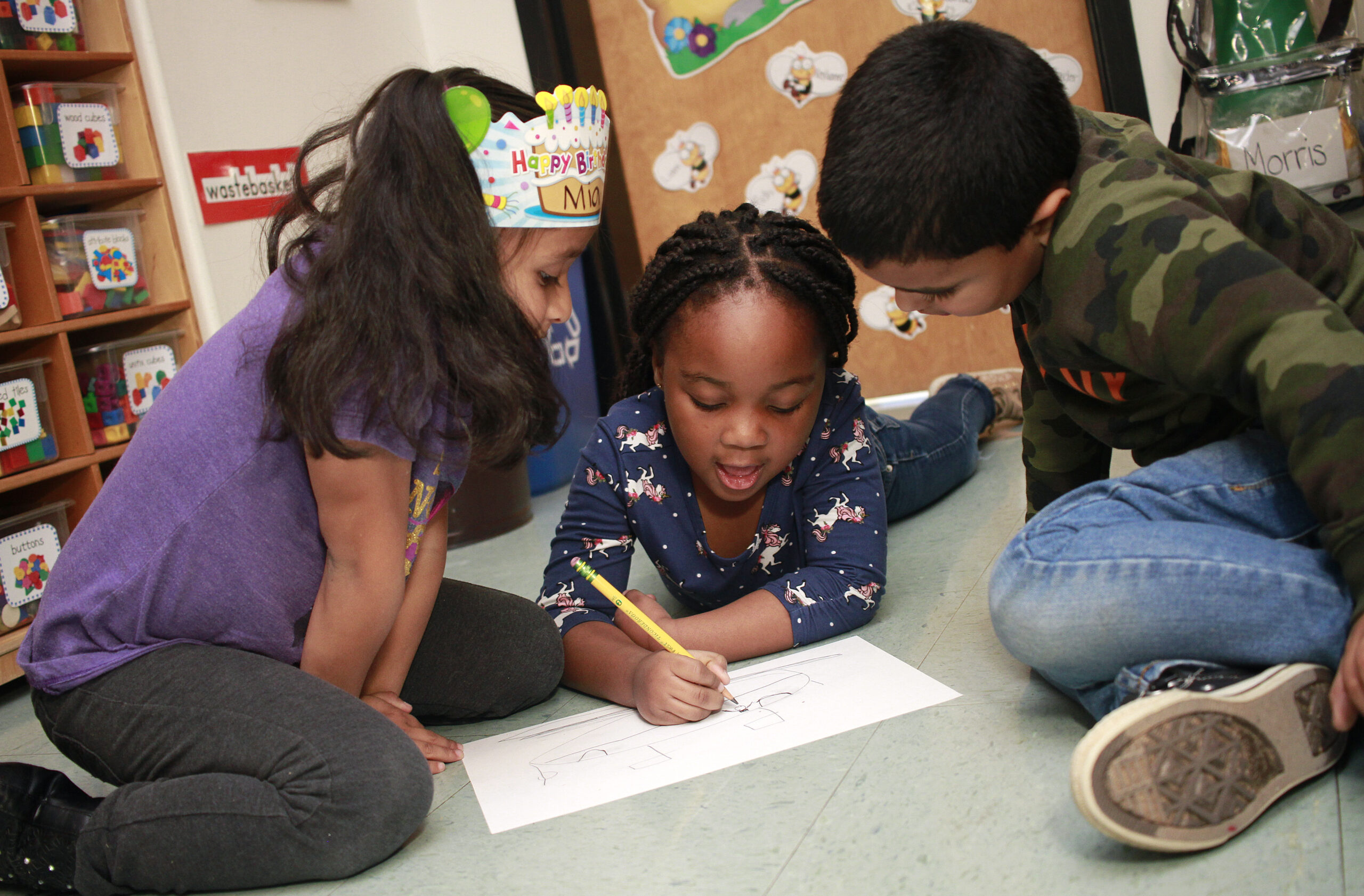Report: Thousands of Metro Atlanta Students Have Likely Fallen Behind Due to Coronavirus

A new report estimates thousands of metro Atlanta public school children have fallen behind during the coronavirus pandemic.
Kaitlin Kolarik / for WABE
Metro Atlanta public school students lost about nine weeks of in-person instruction when schools switched to virtual learning in March due to the coronavirus pandemic. That likely caused thousands of Atlanta public school students to fall behind, according to a new analysis commissioned by non-profits Learn4Life and RedefinEd Atlanta.
The COVID Slide?
The analysis estimates that out of 600,000 Atlanta students, about 21,000 fewer are likely to achieve grade-level proficiency in English Language Arts and 29,000 fewer are proficient in math. That may not be a huge percentage of students, but the numbers have an impact, says Ed Chang, executive director of RedefinEd Atlanta.
“If you took, on average, 500 kids in a school, that’s roughly 42 entire schools worth of children that may not be proficient anymore in ELA and about 58 entire school buildings worth in math,” he says.
Chang says the projections are more concerning for Black, Latinx, and economically disadvantaged students in metro Atlanta. The study projects that only three out of ten historically underserved students will now be on track to grade-level proficiency, compared with four out of ten pre-COVID.
School districts across the region were forced to confront inequity issues when some students were left without digital devices, an internet connection, or both.
“We’re looking at a time frame where equity issues are elevated,” Chang says. “We’re also talking about [a time] where budget cuts are coming forward because revenues from the state are decreased. These are times when you actually need more revenue.”
The state Senate recently approved cuts worth about $1 billion to the state’s K-12 education budget. School districts are predicting reduced local tax collections.
“The state has to decide, ‘Is a billion-dollar budget cut the right thing?’” Chang says. “Or can they create more revenue? Then districts have to… think about, ‘In what way are we allocating [our] resources?’”
A New Beginning?
Chang says this could be the perfect time for schools to innovate.
“As tough as this moment is, it also represents an opportunity to maybe acknowledge the fact that business as usual never really worked all the way in the first place,” he says.
Paul Thomas, an education professor at Furman University, says the pandemic exposed inequities, forcing schools to deal with problems that long existed.
“The shift remote teaching and learning gives almost all students the same experience,” he says. “In other words, everybody has lost the end of the [school] year, which has some kind of weird, perverse equity.”
Thomas says when teachers think in terms of helping some students catch up, they view them through a “deficit lens.”
“When we get back to some sort of normal, we should check where students are and simply start teaching there,” he says.
Learn4Life and RedefinED Atlanta partnered with Empower K12, a Washington D.C.-based research firm, to analyze the report’s data and develop recommendations for policymakers. The suggestions include assessing students at the beginning of the year to secure a baseline and determine where students are, lengthening the school year and/or school day by five percent the next two years, and prioritizing math and reading instruction during any future remote learning.
Ed Chang says schools also need to support teachers and communicate clearly with parents.
“Parents are a huge part of this solution,” he says. “So how are we engaging? How are we actually being really transparent with folks and saying, ‘Look, we couldn’t have predicted it, but here’s what [we’ve] got. Here’s what we’re going to try to do about it and here’s how we need your help.’”








